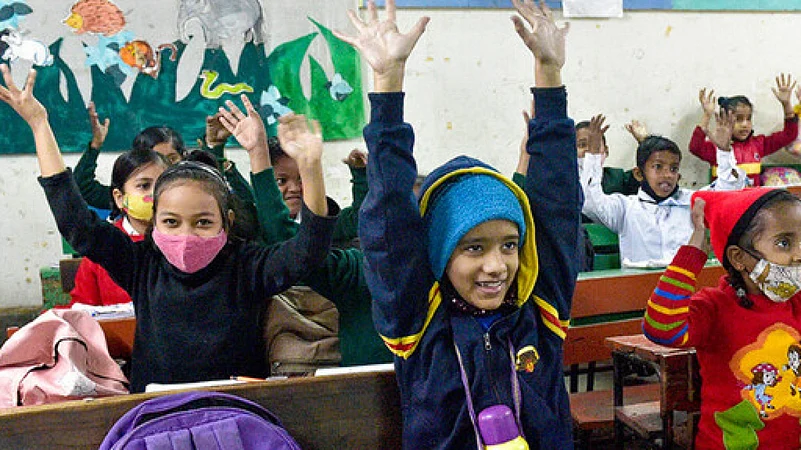With the students of Class 1 to 7 all set to attend schools from February 28 after a gap of two years following improvement in the COVID-19 pandemic situation, the Odisha government has drawn guidelines, including a week-long rapport building exercise.
Principal Secretary, School and Mass Education Department, B P Sethi, said the exercise would take place after the reopening of schools at the elementary level. This is aimed at creating a stress-free and fun-filled learning environment for school children. The children’s emotional well-being needs to be taken care of by creating a happy learning environment in schools, he said.
As per the guidelines, the teachers would prepare a fixed timetable focusing on rapport-building exercises, which will include open discussions for sharing good memories during the pandemic, hobbies, how children felt, and what were their activities during the school closure period.
All the children will be asked to complete the picture by using their creative thought. Clay modelling/any craftwork with locally available raw materials will also be done in the schools. Collage work (pasting of small pieces of paper within an empty picture), proverbs and others will also be conducted.
“Care will be taken to select activities more or less subject related while selecting activities as well as involvement of all children to be ensured,” the Department said in its guidelines.
Baseline assessment of the children (from class 1–5) will be done at the schools in Odia language, Mathematics and English on March 9, 10 and 11, respectively, to know their learning level. The assessment questions developed by TE&SCERT (Teachers Training & State Council of Educational Research and Training) for three levels like Grade I, Grade II & III, Grade IV & V will be provided to the school. The Baseline assessment will be followed by identification of learning status as well as learning loss of each child, the guideline said.
Sethi said the learning level chart will be developed and displayed on the wall of each classroom to mark the progress of each child. Later, the schools will share the answer papers of the baseline assessment with the parents and teachers.
As per the analysis, the teachers are to take up learning activities to recover the learning loss by forming the same ability and mixed ability groupings, he said.
This apart, the schools will also conduct exercises like letter reading, word reading, sentence reading, reading with comprehension, writing letters, writing words, writing sentences, writing with understanding among the students to improve their language.
For Mathematics, activities like number concept, addition, subtraction, division, simple problems, shape and size, etc., will be conducted among the students. Teachers can use various strategies to ensure conceptual clarity of the subject such as by telling stories, games, recitations, pictures, project work and others.
Parents will be motivated to send their children regularly to school as well as monitor the children’s learning progress. The Department has also decided to organize a large-scale campaign at the village level to ensure 100 per cent attendance in school on the reopening day of the school.
Prior to the opening of the schools, PTA (parents’ teachers' association) meeting will be organized on February 26, for a detailed discussion on the activities to be taken as well as their role and responsibilities towards school as well as the academic progress of their children.
With PTI inputs.





















